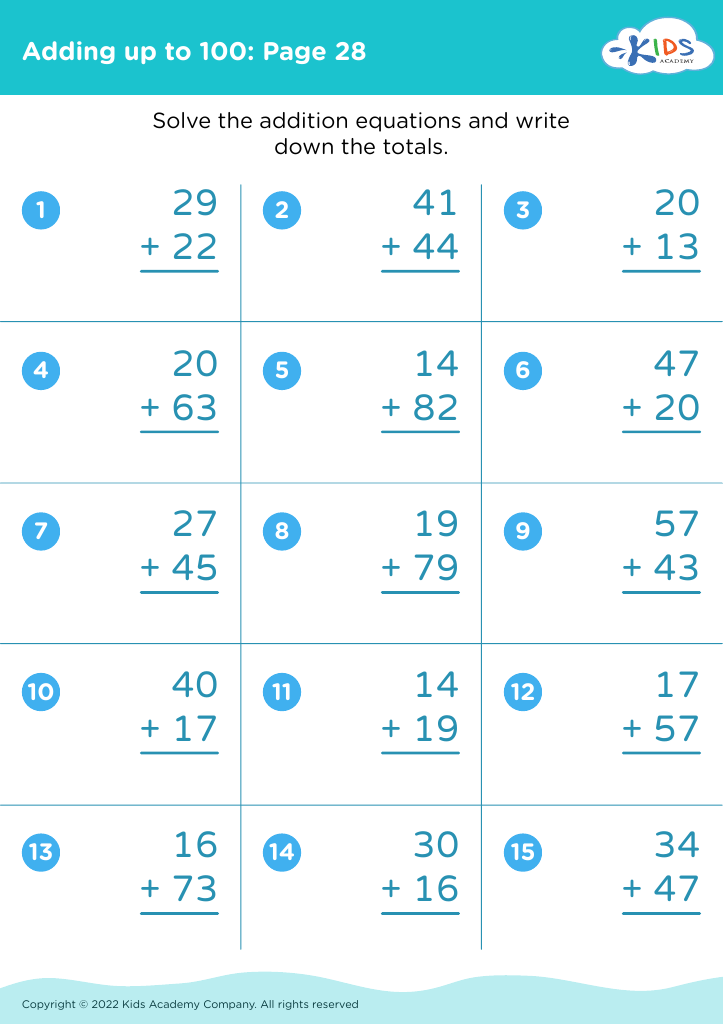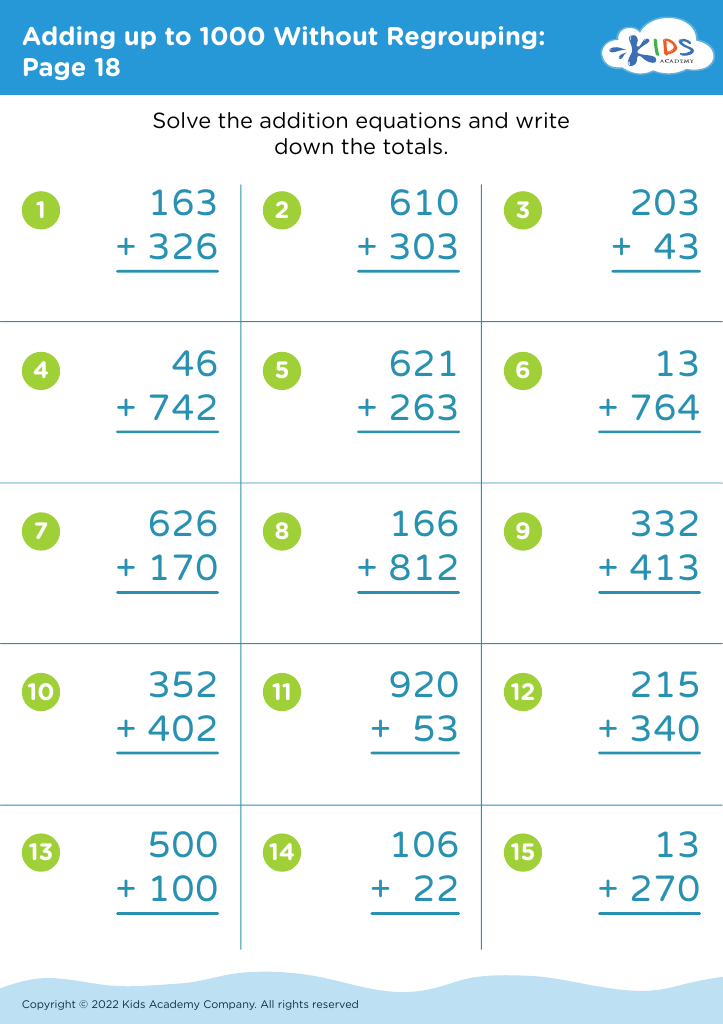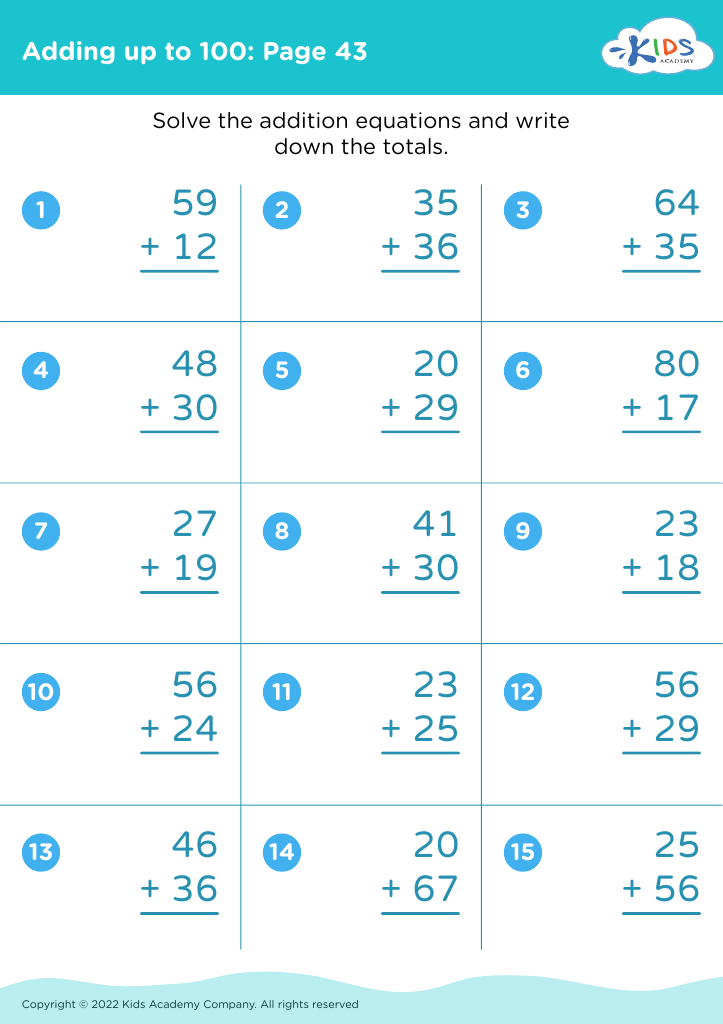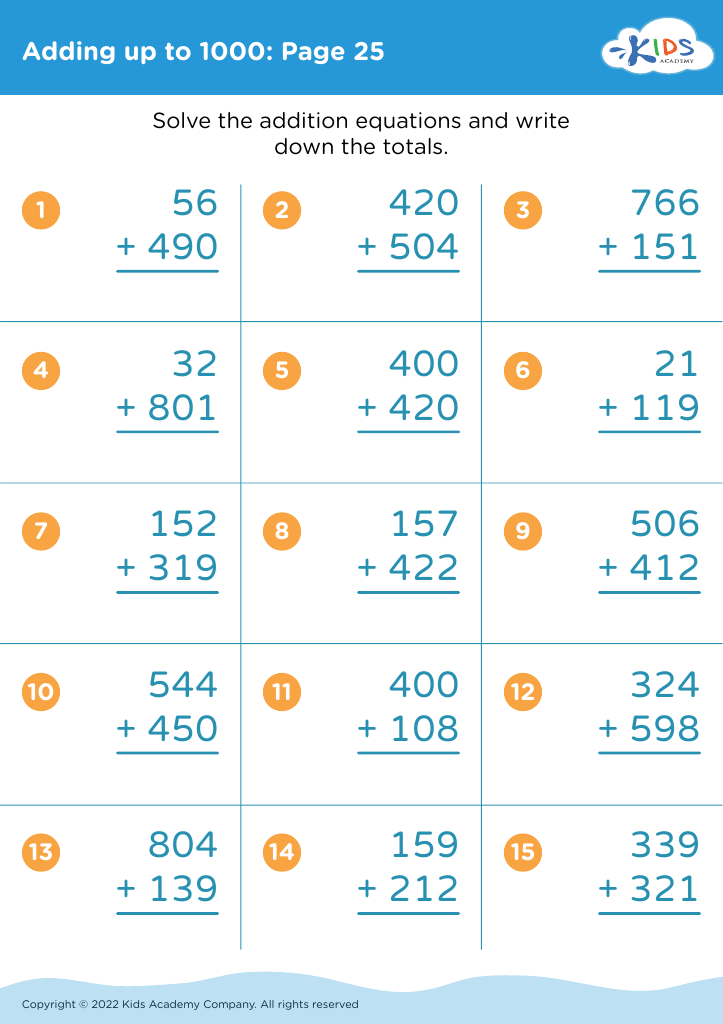Improving mathematical skills Addition Worksheets for Ages 6-8
4 filtered results
-
From - To
Unlock your child's mathematical potential with our "Improving Mathematical Skills Addition Worksheets" designed for ages 6-8. Our engaging and interactive worksheets provide essential practice in addition, helping young learners build a solid foundation in math. Each worksheet features colorful visuals and age-appropriate exercises that make learning math fun and exciting. As children develop their addition skills, they also enhance critical thinking and problem-solving abilities. Tailored to meet educational standards, these worksheets are perfect for home or classroom use. Empower your child with confidence and mastery in addition—download our worksheets today and watch their skills flourish!
Improving mathematical skills, particularly addition, in children aged 6-8 is crucial for several reasons. First and foremost, mastering addition lays the foundation for more complex mathematical concepts that emerge in later grades, such as subtraction, multiplication, and division. Early proficiency helps prevent learning gaps that can be challenging to overcome in the future.
Additionally, strong addition skills are more than just academic achievements; they foster critical thinking and problem-solving abilities. When children can quickly and accurately add numbers, they gain confidence in their mathematical abilities, encouraging a positive attitude toward math as a whole. This confidence can lead to higher performance in school.
Furthermore, addition skills are applicable in everyday life, be it while shopping, cooking, or managing money. By emphasizing the importance of addition, parents and teachers equip children with practical skills they will use throughout their lives.
Lastly, when parents and teachers collaborate to enhance children's mathematical abilities, it strengthens the child’s support system. Engaging in fun, educational activities surrounding math not only makes learning enjoyable but also reinforces the idea that math is an essential, lifelong skill. Thus, prioritizing the improvement of addition skills is imperative for the holistic development of children.




















